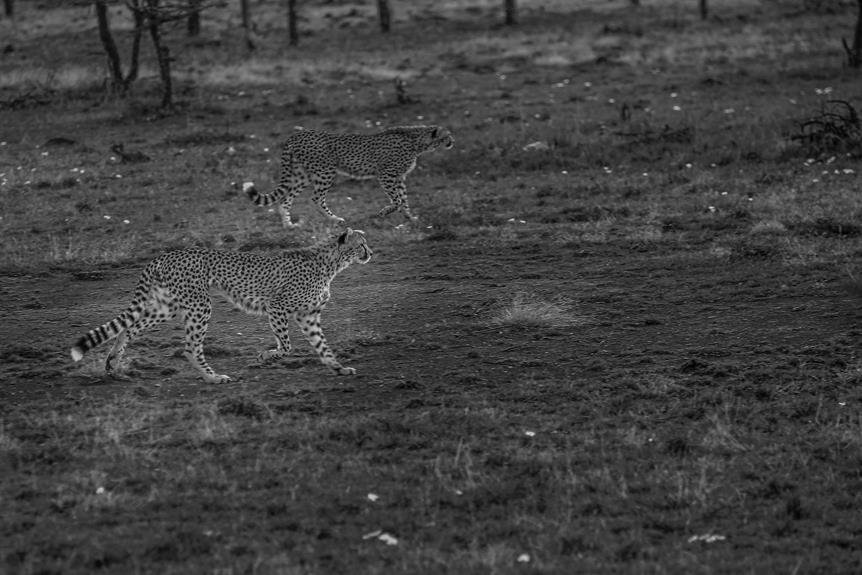
Bow hunting benefits conservation efforts through precise targeting, minimizing unintended casualties among wildlife, and preserving ecosystem balance. The silent nature of bow hunting reduces disruption and prevents animal scattering, aiding in ethical and humane harvesting. By regulating animal numbers sustainably and supporting habitat conservation initiatives, bow hunters play a vital role in maintaining biodiversity and preserving natural habitats. Sustainable resource utilization, revenue generation for conservation programs, and a rewarding hunting experience further underscore the positive impact of bow hunting on wildlife conservation.
Reduced Impact on Non-Target Species
When bow hunting, you can significantly reduce the impact on non-target species by aiming for specific targets with greater precision. Unlike firearms, bows require hunters to get closer to their prey, allowing for a more accurate shot. This precision helps in avoiding unintended casualties among other wildlife in the area. By honing your archery skills, you can ensure that your arrows hit the intended target, minimizing the risk of injuring or killing non-target species.
Additionally, the silent nature of bow hunting makes it less disruptive to the surrounding ecosystem. The loud noise of a gunshot can startle and scatter animals, causing chaos in their natural habitat. With a bow, you can make a quiet, swift kill without causing unnecessary distress to other wildlife nearby.
Ethical and Humane Harvesting
To ensure ethical and humane harvesting practices during bow hunting, it's essential to prioritize clean and accurate shots to swiftly and humanely take down the target animal. By focusing on precision and skill, you can minimize suffering and ensure a quick, clean kill. This approach aligns with the values of freedom and respect for wildlife, as it emphasizes the importance of treating animals ethically during the hunting process.
Choosing the right equipment, such as high-quality bows and sharp broadheads, is crucial for achieving clean kills. Proper training and practice are also key; honing your shooting skills increases the likelihood of a swift and humane takedown. Additionally, understanding anatomy and shot placement is essential for ensuring ethical harvesting. By aiming for vital organs and practicing patience to wait for the right opportunity, you demonstrate a commitment to ethical hunting practices.
Incorporating these principles into your bow hunting routine not only promotes humane harvesting but also contributes to conservation efforts by maintaining a balanced ecosystem. Your dedication to ethical hunting reflects a deep respect for wildlife and a commitment to preserving nature for future generations.
Wildlife Population Management
Prioritizing sustainable hunting practices is essential for effectively managing wildlife populations. By engaging in bow hunting, you contribute to regulating animal numbers in a way that respects the natural balance of ecosystems. Through selective harvesting, you help prevent overpopulation issues that can lead to habitat destruction and competition for resources among species. Bow hunting allows you to target specific animals for population control, such as reducing the numbers of deer in areas where their population is thriving and causing harm to the environment. This targeted approach helps maintain healthy wildlife populations while also supporting biodiversity.
Additionally, bow hunting provides a more challenging and rewarding hunting experience, encouraging skill development and a deeper connection with nature. As you participate in wildlife population management through bow hunting, you play a vital role in conserving the delicate balance of ecosystems and ensuring the well-being of various species. Your active involvement in sustainable hunting practices promotes a harmonious coexistence between humans and wildlife, contributing to the preservation of natural habitats for future generations.
Support for Habitat Conservation
Engaging in bow hunting directly contributes to habitat conservation efforts by actively participating in the preservation of natural ecosystems. By hunting selectively and strategically, you help maintain balanced wildlife populations within their habitats. This balance is crucial for the overall health of the ecosystem, ensuring that no single species overpopulates and causes harm to the environment.
When you hunt with a bow, you support habitat conservation by managing wildlife numbers in a sustainable manner. Overpopulation can lead to habitat degradation and loss of biodiversity. By responsibly hunting, you assist in maintaining the delicate harmony of nature.
Additionally, bow hunting encourages the protection of habitats. Hunters who value the outdoors are often involved in conservation initiatives, such as reforestation projects or habitat restoration efforts. Your involvement in bow hunting can help fund these crucial conservation activities, ensuring that habitats remain intact and thriving for generations to come. Your support for habitat conservation through bow hunting plays a vital role in preserving the natural world for future enjoyment and exploration.
Sustainable Resource Utilization
By utilizing natural resources sustainably, bow hunters play a crucial role in maintaining ecological balance and supporting conservation efforts. Through the selective harvesting of game, bow hunters help regulate wildlife populations, preventing overpopulation which can lead to habitat destruction and species decline. By targeting specific animals based on age and gender, hunters can contribute to healthier ecosystems by controlling population numbers and ensuring genetic diversity within species.
Sustainable resource utilization by bow hunters also aids in reducing human-wildlife conflicts. By managing wildlife populations responsibly, hunters help minimize crop damage and livestock predation, ultimately fostering coexistence between humans and wildlife. Additionally, the revenue generated from hunting licenses and fees goes towards funding conservation programs and habitat restoration initiatives, further enhancing the protection of natural areas.
Conclusion
In conclusion, bow hunting offers numerous benefits for conservation efforts.
By reducing impact on non-target species, promoting ethical harvesting practices, managing wildlife populations, supporting habitat conservation, and utilizing resources sustainably, bow hunting plays a crucial role in preserving our natural ecosystems.
So, next time you pick up your bow, remember that you aren't just hunting for sport, but also contributing to the protection and conservation of our wildlife and environment.




